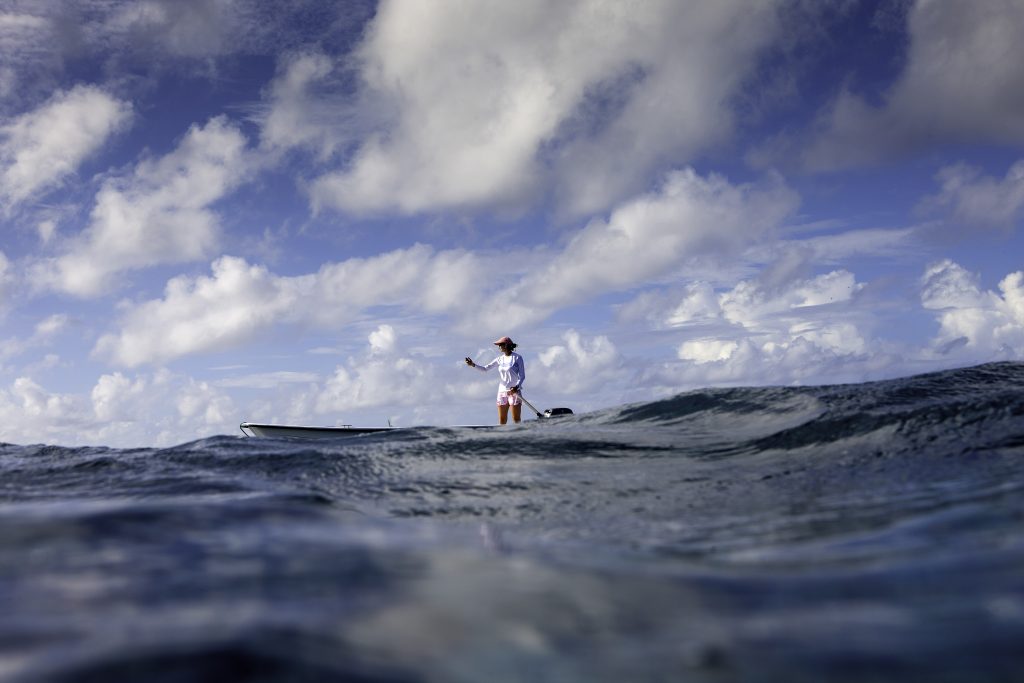Measuring Effectiveness
A reef manager’s challenge is not only deciding which strategies to implement for a particular situation, but also evaluating or measuring the success of those strategies and adapting them if the desired outcome is not reached.
Measuring effectiveness and adaptive management are fundamental to successful planning and management. Measuring the effectiveness of conservation actions through monitoring and evaluation can provide the foundation for learning lessons, defining future strategies, and program development. For example, to achieve reef resilience, local managers must determine the extent to which their actions are working and be able to diagnose why some actions succeed while others do not.

Taking a GPS reading to mark a site for monitoring. Photo © Tim Calver
Measuring effectiveness will help identify the benefits of a program or strategy and the intended impacts and clarify whether the strategies are achieving the intended impacts. Specifically, measuring outcomes can help:
- Identify effective practices – this helps determine which activities a manager should continue and build upon. Some practices might be modified and replicated for other programs or initiatives based on the results.
- Identify practices that need improvement – Some activities may need to change in order to improve the effectiveness of a management program.
- Provide value to existing and potential funders – Funders are acutely aware of the need to document the success of programs, and future funding opportunities will often depend on the manager’s ability to show the effectiveness of management programs and activities.
Refer to the Coral Reef Resilience Online Course Lesson 4: Assessing and Monitoring Reefs and the Monitoring and Assessment section for more details on how to design and conduct monitoring and assessment efforts.
